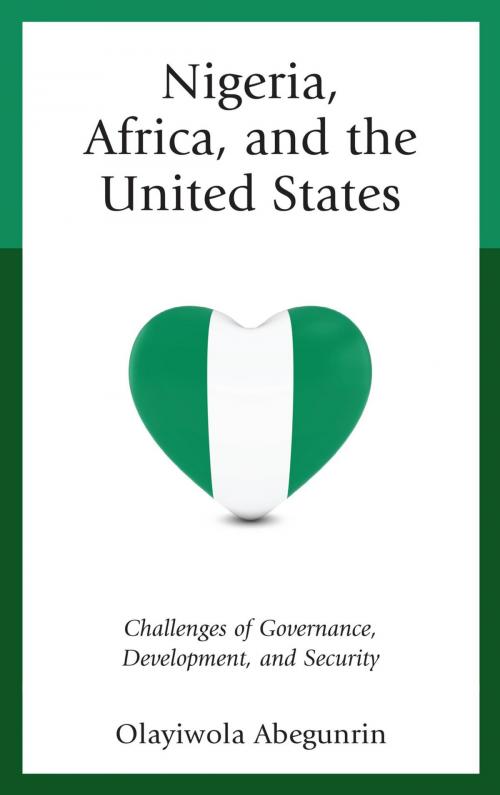Nigeria, Africa, and the United States
Challenges of Governance, Development, and Security
Nonfiction, Social & Cultural Studies, Political Science, International| Author: | Olayiwola Abegunrin | ISBN: | 9781498545365 |
| Publisher: | Lexington Books | Publication: | December 7, 2016 |
| Imprint: | Lexington Books | Language: | English |
| Author: | Olayiwola Abegunrin |
| ISBN: | 9781498545365 |
| Publisher: | Lexington Books |
| Publication: | December 7, 2016 |
| Imprint: | Lexington Books |
| Language: | English |
The U.S. Department of Defense is fighting a new shadow war in Africa. Africa is the battlefield of tomorrow, and the United States military is spreading secret wars in the continent. This book explores how and why this has happened. Since the beginning of the twentieth century, the formulation of the United States policy towards Africa has always been based on the strategic importance of the natural resources of Africa and how these can be used in the national interests of the United States. However, most Americans gave very little thought to Africa, but instead referred to it as the Dark Continent, not only because its peoples are dark-skinned, but also because it was unknown to them. Africa is no longer dark, but is rather becoming one of the lions on the move. This book examines and analyzes Nigeria and U.S. policy on the continent since the Cold War. It looks at Nigeria and the challenges facing the country, including problems of development, good governance, and security. It particularly focuses on the impacts of terrorism on Nigeria and U. S.-Africa relations since the Cold War and the realities of September 11, 2001, in relations to Nigeria and United States-Islamists/jihadists' terrorism in Africa.
There is huge potential in Nigeria; the country has the largest population in Africa, and is well-endowed in terms of both natural and human resources. Nigeria also has the largest economy on the continent, the largest black population in the world, a burgeoning and vibrant youthful population, and a tradition of international engagement since its independence. Its advantageous geographical location in West Africa enables trade within the continent, as well as with Europe, North and South America, and Asia. Nigeria is the most important strategic partner for the United States in the African continent, and will become increasingly so in this century.
The U.S. Department of Defense is fighting a new shadow war in Africa. Africa is the battlefield of tomorrow, and the United States military is spreading secret wars in the continent. This book explores how and why this has happened. Since the beginning of the twentieth century, the formulation of the United States policy towards Africa has always been based on the strategic importance of the natural resources of Africa and how these can be used in the national interests of the United States. However, most Americans gave very little thought to Africa, but instead referred to it as the Dark Continent, not only because its peoples are dark-skinned, but also because it was unknown to them. Africa is no longer dark, but is rather becoming one of the lions on the move. This book examines and analyzes Nigeria and U.S. policy on the continent since the Cold War. It looks at Nigeria and the challenges facing the country, including problems of development, good governance, and security. It particularly focuses on the impacts of terrorism on Nigeria and U. S.-Africa relations since the Cold War and the realities of September 11, 2001, in relations to Nigeria and United States-Islamists/jihadists' terrorism in Africa.
There is huge potential in Nigeria; the country has the largest population in Africa, and is well-endowed in terms of both natural and human resources. Nigeria also has the largest economy on the continent, the largest black population in the world, a burgeoning and vibrant youthful population, and a tradition of international engagement since its independence. Its advantageous geographical location in West Africa enables trade within the continent, as well as with Europe, North and South America, and Asia. Nigeria is the most important strategic partner for the United States in the African continent, and will become increasingly so in this century.















